Polymers Petrochemicals carbon fibre 18-01-2019 - Arhive
-China – Polyethylene Terephthalate
PET is firm, while its chain continues to be weak.
PET Bottle grade export 1,010/1,050 $/ton – PET Bottle grade domestic market 8,050/8,150 yuan/ton – PET Filament grade SD domestic market 7,600/7,700 yuan/ton – PET Filament grade BR domestic market 7,550/7,650 yuan/ton
PTA Taiwan 815/825 $/ton – PTA domestic market 6,300/6,400 yuan/ton – MEG $ 605/615 $/ton – MEG domestic market 4,950/5,050 yuan/ton – PX Korea 1,035/1,045 $/ton
POY 150D/48F domestic market 8,050/8,200 yuan/ton – DTY 150D/48F domestic market 10,050/10,150 yuan/ton – PSF domestic market 8,800/8,900 yuan/ton
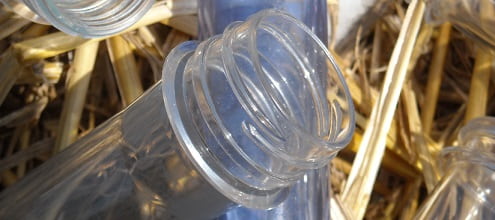
German leaders have urged Britain to stay in the EU amid the chaos over Brexit, as Whitehall chiefs have reportedly been ordered to draw up contingency plans for a snap general election.
In impassioned plea over a dozen high profile Germans from politics, arts and industry, including the frontrunner to succeed Angela Merkel as chancellor, wrote in a letter: “From the bottom of our hearts, we want them to stay”.

Indorama Ventures Completes Acquisition of PET Processing Plant from Custom Polymers PET
Thailand’s Indorama Ventures (IVL) completed a deal to acquire a plant for the processing of polyethylene terephthalate (PET) from the US company Custom Polymers PET, the company said.
Indorama acquired a PET processing plant on January 2 and closed the deal on January 15. The plant is located next to the AlphaPet polyester plant in Alabama, USA. The deal was announced last December.
The complex consists of two production lines – one for the production of recycled PET (A-PET) flakes, and the other for the production of food A-PET, with a total capacity of 31 thousand tons per year.
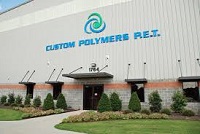
Crude Oil Prices Trend

Turkish low density polyethylene spot prices rise for first time in a year
Low density polyethylene spot prices in Turkey have risen for the first time since the end of January last year despite a continuation of weak buying interest, market sources said Wednesday.
Buyers in Turkey remained reluctant as the exchange rate woes and economic uncertainty that dogged the market throughout 2018 remained features of the market in the opening weeks of 2019 and showed no sign of disappearing in the short term.
Nevertheless, the downward trend seen throughout the PE markets in Turkey during the closing months of 2018 has halted as the lowest offers heard in the market in the last weeks of December evaporated in January.
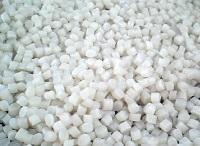
Nestlé promotes the need for collective action to address plastic waste
Company details actions for meeting its commitment to make its packaging recyclable or reusable by 2025.
Nestlé, headquartered in Vevey, Switzerland, has announced a series of specific actions designed to help the company meet its April 2018 commitment to make its packaging recyclable or reusable by 2025. Additionally, the company shared its plans focused on avoiding plastic waste.
“Our broader vision and action plan outline our commitment and specific approach to addressing the plastics packaging waste issue,” Nestlé CEO Mark Schneider says. “While we are committed to pursuing recycling options where feasible, we know that 100 percent recyclability is not enough to successfully tackle the plastics waste crisis. We need to push the boundaries and do more. We are determined to look at every option to solve this complex challenge and embrace multiple solutions that can have an impact now. We believe in the value of recyclable and compostable paper-based materials and biodegradable polymers in particular where recycling infrastructure does not exist.”

Ampacet doubles colour production capacity and expands European R&D
Ampacet, a premier global provider of masterbatch and additive materials, services and solutions, announces the start-up of two new colour production lines and the expansion of its research and development and colour labs in Dudelange, Luxembourg.
Ampacet announces two new colour production lines
The two new colour production lines, due to become active during the second quarter of 2019, are part of Ampacet’s long-term expansion plan. Both lines were engineered with a focus on safety and ergonomics.
Their energy and water systems have also been modified to produce minimal environmental impact.
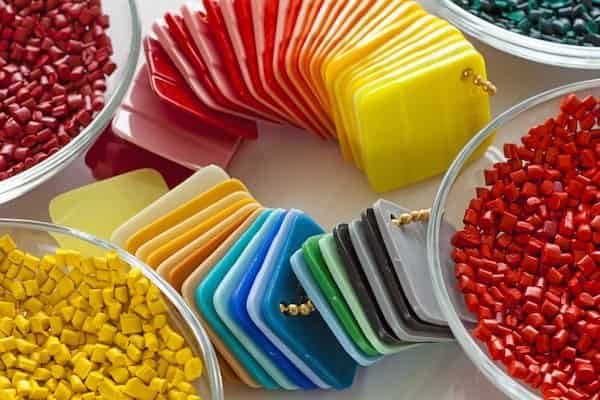
lmost all plastic is made from crude oil, and plastic production currently accounts for 4-6% of global oil consumption. The development of renewable bioplastics is progressing, but relatively few are actually being used.
A strong candidate among bioplastics is polyethylene furanoate (PEF). Instead of oil, PEF contains the hydrocarbon, furan, which can be extracted from maize, wood and certain types of grain. The main market for PEF is packaging. Experiments have shown that PEF is superior to standard polyethylene terephthalate (PET) in protecting against oxygen, carbon dioxide and water, which gives products enclosed in plastic greater durability.
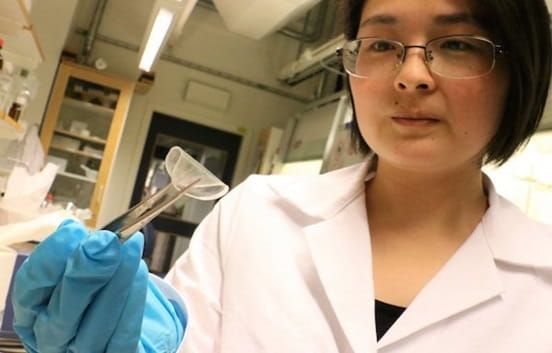
Santiago Navarro, CEO and Co-Founder of London-based Delivering Happiness Ltd., trading as Garçon Wines, discusses why the company chose PET, and in particular recycled PET, for its award-winning Flat Wine Bottle for e-commerce.
Are there hurdles to convincing consumers of the quality of wine in PET?
We’ve engaged with consumers and have found that the high quality of the bottle finish, together with the novel and attractive shape, gets consumers thinking differently and happily, and so we’ve not yet experienced concern from the wine drinkers we’ve shown our bottles to.

Brexit disarray preventing UK businesses from making investment decisions – CIA
The collapse of the draft deal for the UK’s breakaway from the EU is a disappointment to the country’s business community, leaving firms without the necessary clarity to make investment decisions, the UK’s chemcials trade group CIA said on Wednesday.
The decisive failure of the vote to pass the withdrawal agreement in the UK’s House of Commons on Tuesday means that no clear idea of how the country’s post-Brexit trading relationship with the EU is likely to emerge in the near future, with just over two months remaining before the planned departure date.
The pound sterling’s value rose immediately after the vote; the UK’s main stock exchange the FTSE 100 was trading slightly lower on Wednesday morning.

Toward a circular economy: Tackling the plastics recycling problem
Why has the world continued to increase consumption of plastic materials when at the same time, environmental and human health concerns over their use have grown?
One answer is they are immensely useful to humankind, and despite problems they create, they have provided countless benefits. They are used to construct lighter automobiles and planes, improving fuel efficiency and reducing greenhouse gas emissions. Plastic food packaging has dramatically reduced food spoilage, improving human health as well as decreasing emissions associated with transportation and decomposition of waste. In addition to all these upsides, another benefit often quoted is that plastics are recyclable.
At UMass Lowell, where I am based, we argue that “recyclable” must be clearly distinguished from “recycled.” Unfortunately, society has a long way to go before we could declare plastics recycling a success.
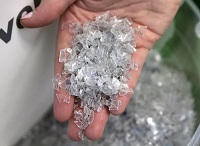
Microban International, a leader in antimicrobial and odour control and prevention technology, has received bluesign approval, an industry standard that ensures antimicrobial products are sustainable and safe for the environment, for two technologies, including Scentry Revive BC300A and BC300B and Aegis AEM5772-5, AEM5700 and FU5700.
These additions bring the Microban bluesign approved portfolio to a total of 10 antimicrobial and odour control solutions. Scentry Revive, a patent-pending odour capture platform, launched globally in April 2018. AEGIS has been an industry-leading antimicrobial solution for more than 30 years.

Expert View: Brands – a pragmatic approach to bio-based chemicals.
The brands I speak with have well-crafted plans for advancing the sustainability of their products. These address choosing materials for recyclability, considering end-of-life reuse, energy consumption during production, packaging, and community-related issues, consistent with the United Nations’ Sustainable Development Goals.
I was particularly energised by my conversations at the VERGE18 conference, where I was asked to be a discussion leader at the Circular Plastics Summit, co-led by the Ellen MacArthur Foundation (I encourage you to read their New Plastics Economy and Make Fashion Circular reports).
Increasingly, brands are seeing the opportunity to improve sustainability through increased use of renewably-sourced materials. This approach is part of a broader set of initiatives to increase circularity in a range of global material flows.
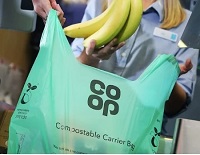
Evonik develops new polyamide moulding compound for optical applications
Evonik has developed a new polyamide moulding compound, TROGAMID myCX high flow, for optical applications.
The company says it offers crystal-clear transparency, excellent wear comfort and high durability along with improved processing capabilities.
Compared to similar high-performance materials, the improved flowability of TROGAMID myCX makes it possible to process the moulding compound at a temperature profile that is at least 20°C lower, enabling greater energy efficiency and productivity in processing.

Alpek Polyester business DAK Americas has signed an agreement to acquire the Perpetual PET recycling facility in Richmond, Indiana (USA).
The plant has an annual capacity of approximately 45,000 tonnes a year of recycled PET flake, and will complement Alpek Polyester’s existing food-grade PET recycling capacity in Pacheco, Argentina and its fibre-grade recycling joint venture facility in Fayetteville, North Carolina.
“The acquisition of Perpetual and additional rPET capacity demonstrates Alpek Polyester’s ongoing commitment to sustainable product offerings to meet growing customer and consumer demand for rPET content. The addition of this facility will allow us to expand our sustainability initiatives,” said Jon McNaull, vice president of PET Resins at Alpek Polyester.
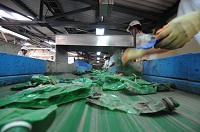
As bans on single-use plastic bags and straws gain momentum across the globe, attention is now focused on another mighty environmental opponent: styrofoam. Styrofoam poses serious health concerns for aquatic life and the general health of the planet, which is no surprise, given that it’s made of thousands of pieces of non-biodegradable plastic.
While the material is less commonly accepted at recycling facilities than paper or plastic due to the high costs and energy use required to recycle it, with a little extra effort, it’s still possible to recycle styrofoam if you find yourself with stray cups or takeout containers. So how exactly do we ethically rid ourselves of the dreaded foam?
First things first, it’s a common misconception that all those packaging materials, disposable cups, and plates are made of styrofoam. In fact, all of that material is actually referred to as expanded polystyrene. Styrofoam is similar, although less flexible, and used in insulation and construction (and typically blue rather than white).
Styrofoam has become an umbrella term used to describe all expanded polystyrene products, accurately or not. For the purposes of this story, we’ll refer to all styrofoam products as EPS.
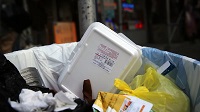
China’s Zhejiang Petrochemical to use Honeywell technologies in phase II Zhoushan plant
China’s greenfield Zhejiang Petrochemical will use a range of process technology from Honeywell UOP for the second phase of its integrated refining and petrochemical complex in Zhoushan, Zhejiang province, according to a document, quoting a senior Honeywell official, seen by S&P Global Platts Thursday.
Register Now “This second phase of the complex by itself will process 20 million tons per year of crude oil and produce another six million tons per year of aromatics when completed,” Bryan Glover, vice president and general manager, Process Technology and Equipment, at Honeywell UOP, stated in the document. “It will be the largest crude-to-chemicals complex in the world, with more than 50% of the crude converting to petrochemicals.”
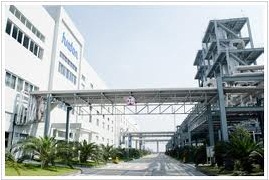
Many of us are aware there is considerable controversy about the growing use of bioplastics in this country and around the world. Bioplastics, just so we are all on the same page, are made by extracting sugar from plants such as corn and sugarcane and converting it into one of two different types of plastic.
PLA: polylactic acids, often used for food packaging
PHA: polyhydroxyalkanoates, found in some medical devices and used to make cardiovascular patches
Among the benefits touted for the use of bioplastic is that it can help us reduce the use of petroleum. Further, because it is derived from renewable resources and the plants can be grown all over the world, this can help improve the economies of many poorer countries along with the pocketbooks of smaller, rural farmers.

Reliance Industries Limited (RIL) has witnessed 37.1 per cent year-on-year increase in its revenue from the petrochemicals segment during the third quarter of fiscal 2019. The rise to Rs 46,246 crore is with improvement in price realisations and volumes primarily in polymer products and fibre intermediates. EBIT was totaled Rs 8,221 crore, up 42.9 per cent.
Strong volume growth and robust polyester chain margins offset the impact of weaker polymer margins. The annual volume growth was led by successful stabilisation of the world’s largest ROGC, its downstream units and new PX facility at Jamnagar.
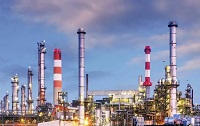
Oil slides on increased U.S. output and U.S.-China trade fears
NEW YORK (Reuters) – Oil prices fell about 2 percent on Thursday, extending recent weakness on concerns over surging U.S. crude production and slack global demand, particularly in light of the ongoing trade dispute b Brent crude oil futures LCOc1 were down $1.06, or 1.7 percent, to $60.26 a barrel by 11:03 a.m. EST (1603 GMT). U.S. crude futures CLc1 fell $1.00 to $51.31 a barrel, off 1.9 percent.

